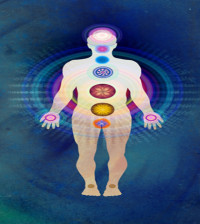- 5 Tips To Finding Peace Within Yourself
- The Do’s and Don’ts of Learning How to Accept Yourself
- How to Find Your Inner Peace and Transform Your Life
- 8 Benefits of Having an Open Mind and How to Get One
- Learn How To Be A Happier Person
- What Is The Meaning Of Life?
- Laws of Abundance – The Riches of Love and Joy
- How to Be Laid Back By Following These 9 Simple Strategies
- The meaning of confucius’ golden rule – 4 practical ways of living it
- 3 methods of unleashing the power of contentment in your life
Five Ways to Deal with Grief

Expert advice for a very trying time
Grief is the way we respond to the loss of a loved one or something precious. Although grief is a personal and individual experience, there are five ways to deal with grief that most experts agree on.
Grief is an emotion
Grief is an emotional response and should be handled the same way as we handle other emotions. Understanding grief is the first step in learning how to deal with it. The grieving process goes through four stages.
➢ Shock – The initial response to a terrible loss is the mind recoiling from the event as an instinctive and protective mechanism. Denial of the loss is the mind’s refusal to accept what it knows to be true. This phase will normally last for a couple of months.
➢ Concern – Concentration on the loss is the next stage, which can last for as long as a year. The loss occupies the griever’s mind constantly, even while going about normal daily tasks.
➢ Depression – The longest phase of the grieving process, the person suffers through the pain of having to come to terms with the reality of a loss. A person experiences all sorts of feelings and thoughts such as anger, guilt and anxiety. Behavior may change and at times even become irrational.
➢ Recovery – In this stage, a griever has accepted the loss, renews an interest in living and starts to function normally. Although memories of the loss remain, the person starts to re-structure his or her life around it.
No quick fixes
Grieving is not easy and different people handle grief in different ways. Nevertheless, there are no shortcuts and it helps to get expert advice on how to cope with grief. Institutions like the Mayo Clinic suggest at least five ways to deal with grief and to help make going through the process more bearable.
1. Face up to your feelings. Accept that the pain you’re feeling is natural and part of the process. Trying to avoid or hide your feelings of grief can lead to depression, anxiety and other problems.
2. Actively express your grief. Mourning is one way to express your feelings of grief. Look for creative ways like writing about your feelings, making a photo album about your lost loved one or joining an organization that was important to him or her.
3. Get support. Turn to family members and friends for help, a sympathetic ear or a shoulder to cry on. Talk to a pastor, therapist or join a support group. Be open to others who want to share your grief.
4. Look after yourself. Get enough sleep, eat properly, exercise and avoid alcohol or drugs. Get a physical check-up if you need one. Don’t forget that the body and mind are connected so try to stay in good shape.
5. Meditate. The period of grief is accompanied by a lot of stress and anxiety. Meditation can help by relaxing the mind and directing its focus away from troubled and confusing thoughts to help lessen feelings of sadness and stress. Grief meditation that includes the lost loved one can be a powerful source of comfort for a grieving person.
Other helpful tips
These five ways to deal with grief can be combined with other mechanisms to help a grieving person cope. Some other ways to consider are:
➢ Be ready for emotional surprises. Holidays, anniversaries and special places can bring up a lot of painful memories. Be prepared for them and realize that it’s only normal to feel distressed at times like these.
➢ Keep busy. Start a diary or journal and write about your experiences. Engage in a hobby or two that will occupy your mind. Join social clubs or start visiting friends you haven’t seen for some time.
➢ Help others. Divert your attention from yourself to others, especially disadvantaged persons. It’s a good way to help you stop feeling sorry for yourself.








































You must be logged in to post a comment Login